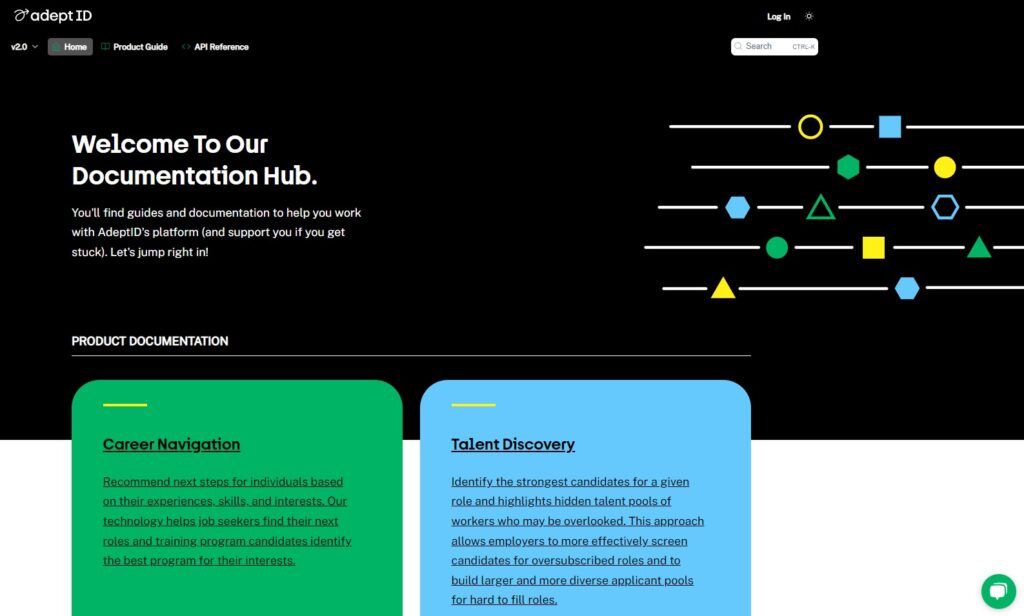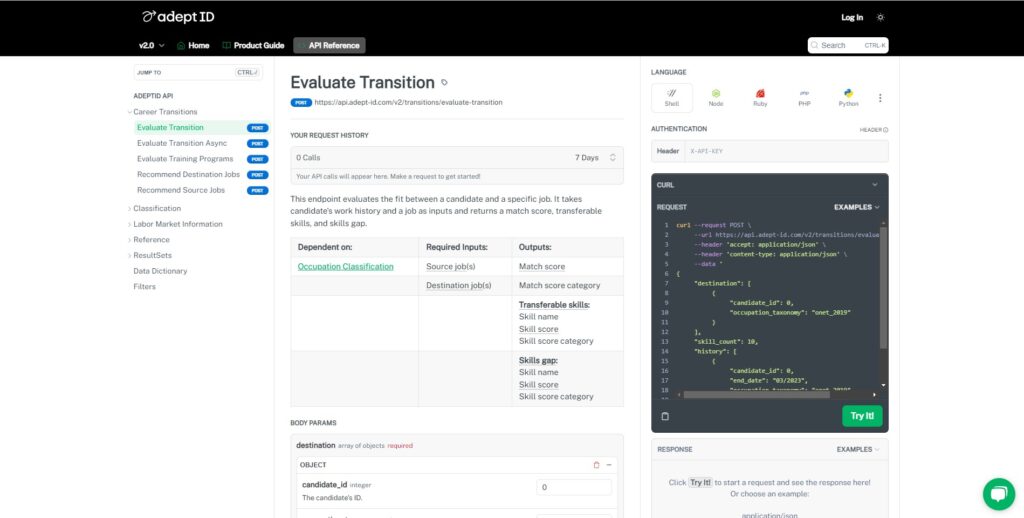Announcing our API “V2” Release

Our engineering and product teams have been continuously making improvements to our APIs (the way that our partners access our models and insights) since its launch in the Summer of 2021. Towards the back part of 2022, we realized that we were overdue for a more dramatic set of changes. So we grouped a set of improvements in structure, underlying data, and developer experience into a “V2 Release”. Here’s a long overdue post describing that release (you can always learn more directly from our documentation).
What did we release?
Earlier this year, we released a complete refactor of our APIs which simultaneously makes them easier for customers to use, faster to implement, and includes more robust and actionable information to support career transitions.
Why is this good news?
Simplified Call Structure
The API stack is now built around three easy-to-use endpoints:
Each endpoint provides a match score, skill gaps, and transferable skills. These three endpoints provide the basis for use cases including matching candidates to jobs or training programs, uncovering new sources of talent, and recommending personalized career pathways.

Improved Interpretability of Results
We have made a number of data enhancements to improve the usability of our results including adding category tags (very high, high, med, low) to match quality, occupation size, and wages so that users do not need to interpret raw numbers, and intuitive alternative names for ONET (e.g. “Retail Manager” instead of “First-Line Supervisors of Retail Workers”).
Improved Actionability of Results
- Updated taxonomy to better reflect the future of work as captured in the US Government’s most recent version of ONET (2019).
- Customizing Results Set to Your Use Case: Flexible filters allow users to ensure that the results returned match their use case and are relevant for their users. For example, a user may wish to only return IT jobs or only return jobs that pay a living wage or exclude small declining roles such as Printing Press Operators.
Many of our partners continue to leverage partner-specific API endpoints that leverage a combination of their own data and what AdeptID has learned from across our platform. These do not show up in the API Reference but they are discussed in our Use Cases section.